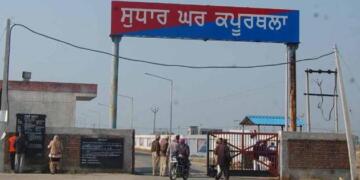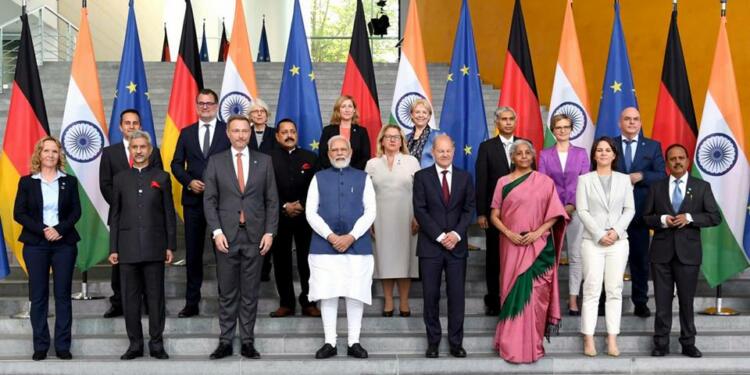The world is constantly getting polarised. Interestingly, Polarity is shifting away from the American block and almost every mildly developing and developed Country is trying to have its own sphere of influence. However, there is one thing common in almost every one of these groupings. And that is India’s clout among the members comprising these groups. G7 is not different and that is why it can’t help but extend an invitation to India.
PM Modi in Germany
PM Modi has a problem on his hands. Don’t worry; it’s a good problem to have. It is the problem of scheduling and cramming countries and regional forums willing to associate their names with India. Take his next leg of foreign tours for example. The time crunch is so hard that the G7, a forum of supposedly big heads of the world, is only one of the groups PM Modi will be affording his time to.
For the purpose of attending the G7 annual Summit meeting, PM Modi will be in Germany on June 26 and June 27. A statement by the Ministry of External Affairs said, “Prime Minister Narendra Modi will be visiting Schloss Elmau, Germany at the invitation of Chancellor of Germany, Olaf Scholz, for the G7 Summit under the German Presidency on June 26 to 27.”
The increasing importance of India can be gauged from the fact that PM Modi will be speaking in two sessions. “During the summit, the Prime Minister is expected to speak in two sessions that include environment, energy, climate, food security, health, gender equality and democracy” added the Ministry of External Affairs.
Read more: India was supposed to hold either the Russian pole or the US pole. It became its own pole
Apparently, G7 is not the only Summit on the schedule. Before G7, the honourable Prime Minister will be attending BRICS and Commonwealth Summits as well. In fact, after G7, PM Modi will be rushing towards UAE.
So, you see, the importance of G7 for India has decreased so much that it is one of many on the itinerary. In fact, it is the 3rd one.
Reasons for G7 invitation to India
So, the obvious question is how did it actually happen? How did the group of countries who hate Russia and accuse India of supporting it end up inviting India for the fourth consecutive time?
It is tough to pinpoint a single, specific reason. Democratic institutions take a collective effort to operate in a seamless fashion. But, a large part of the credit always goes to the leader. For the last 8 years, PM Modi and his cabinet have been proactive in highlighting every minute aspect of India’s growth story on the global stage.
PM Modi and respective Ministries, especially External Affairs Ministry left no stone unturned in ensuring that our nemeses are sidelined while we are forced up the trajectory. Under Srimati Sushma Swaraj, India started its multilateral offence by making forums like SAARC irrelevant. On the other hand, PM Modi started to rebuke organisations like United Nations in its own den.
Ministries did their bit
The stage was set by PM Modi. It was time for his Cabinet Ministers to follow up. Finance Ministry did its part by increasing India’s Aatmanirbharta. Sports Ministry did its part by enhancing India’s medals tally in the Olympics. Commerce Ministry did its part by staying firm on various issues affecting India’s interests.
But, all these initiatives would not have fructified if External Affairs Ministry had not done its due diligence. On one hand, Sushma Ji sent the signals to the world that it won’t ever leave its citizens in jeopardy, while on the other Jaishankar came up with his iron fist.
Read more: Modi@8: The achievements of the External Affairs Ministry under PM Modi
Jaishankar holds the lion’s share
Jaishankar was the one who took India’s offence from being covert to being overt. Though Commerce Ministry had already clarified its stance by pulling India out of the RCEP deal, it was Jaishankar who had embodied that confidence in his body language and words. Apparently, even before India had thrashed China in Galwan, India was invited by G7 in 2019. It continued for 2 more years and now 4.
Meanwhile, Jaishankar ensured that India also emerges as the winner in this game of optics. On the global stage, he thrashed western countries left, right and centre. The dominance was of such a colossal proportion that the US’ condemnation of India’s increased ties with Russia came in a very hushed tone.
Today, G7 knows that India does not need it. Instead, it is the other way around. Every country in the grouping needs India for bilateral support. They know that even if they don’t invite India, it won’t affect its interests. It will affect their economical and strategic interest.
Support TFI:
Support us to strengthen the ‘Right’ ideology of cultural nationalism by purchasing the best quality garments from TFI-STORE.COM























